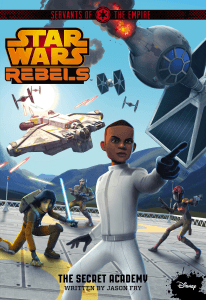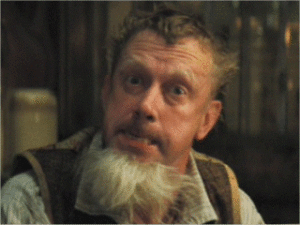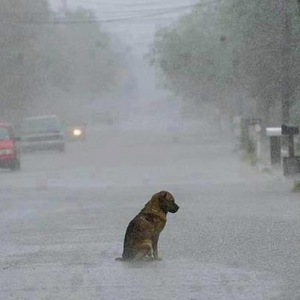Review: Star Wars: Servants of the Empire: The Secret Academy by Jason Fry (or, Hogwartier Than Ever)
Before we begin, I wish for you to know that there will be spoilers. Not great ones, but still; spoilers in recap for the previous books. Minor spoilers for this book. Potential spoilers for series 2 of Star Wars: Rebels and potential spoilers for Star Wars: The Force Awakens.

And might I add: whoah boy. Star Wars: Servants of the Empire: The Secret Academy by Jason Fry and published by Egmont, is the culmination of a four book series, following the lives of our heroes Zare Leonis and Merei (she has a last name, but none is required), and what a culmination indeed.
 The last book sees Zare receive entry into the prestigious Imperial officer academy on Arkanis, in the attempt to discover his kidnapped sister, Dhara, who is held there. Merei, meanwhile, has to survive the Imperial investigation into her rebellious activities – an investigation headed by none other than her mother – as well being, essentially, blackmailed to work for a small time crime boss.
The last book sees Zare receive entry into the prestigious Imperial officer academy on Arkanis, in the attempt to discover his kidnapped sister, Dhara, who is held there. Merei, meanwhile, has to survive the Imperial investigation into her rebellious activities – an investigation headed by none other than her mother – as well being, essentially, blackmailed to work for a small time crime boss.
This book sees the continuation of those events, which I’ll detail shortly, but firstly I want to mention that there’s a slight format change in this book, compared to those previous. Like before, the book is split into three acts. Unlike before, each act has exclusively one point of view character: the first with Zare, the second Merei, and the third returning to Zare. It’s an odd change, but it didn’t affect my read-through in any real or negative way. And though the first two acts occur at roughly the same time, there’s not much overlap, with only one scene that’s repeated, from a different viewpoint – but I feel it was handled well.
Now: Zare, at the beginning of this book, arrives on Arkanis, and ostensibly continues his officer training, while he continues his real mission of seeking his sister. With no plan in place – though winging it is what he does best – he determines that his sister is held in a top secret building, that is in full view of everyone and their nerf. (By the way, here comes the potential The Force Awakens spoilers) To rescue his sister, he must first gain entry into a secret cadre within the school, the so-named Secret Academy. This academy is headed by an old, red-headed officer by the name of (and if this were a movie there’d be suspenseful dun dun duunnns) Commandant Hux.
As we know, there’s a young, red-headed character named General Hux in the upcoming film. It’s probably no great leap to believe that the two are father and son, or at least familially related. Just a reminder, General Hux is portrayed by Domhnall Gleeson, who played one of the Weasley children in the Harry Potter films. So of course I imagined the commandant being portrayed by Mark Williams.

And it’s here, in the last book of the series, that I’ve finally warmed to Zare. On his own, he really shines, and I was very impressed with his hard-won intellect and his wisdom, as well as his strength and resilience. Here he is, plopped into a very hostile environment, with no plan, no back up, no real chance or hope of succeeding, yet still he continues, still he holds out hope. Finally he was a main character that I could admire and, perhaps more importantly, like.
He’s also grown a lot over the course of the books, and it’s obvious from the start. What’s more, in previous books, you could be forgiven for thinking that he’s succeeded as far as he has simply by being lucky, by being in the right place at the right time. This wouldn’t be entirely accurate or fair, as just the ability to think on your feet and and turn a situation to your advantage is a good character trait to have. But it’s not just that; he has managed to learn, adapt and engineer events and obstacles to get his own way. That said, there did exist the odd occasion where he did the minimum amount of effort for maximum gain – and this book undermines that assumption.
It also helped that Arkanis rains pretty much all the time. One good way to get on a Brit’s good side is to moan about the weather.

Merei, meanwhile – and here I must divulge a minor spoiler, otherwise I’d have nothing to write – is on Lothal, but due to the fallout of her actions in the previous book must go on the run. And because this book takes place during and after the events of the latter portions of Rebels season 1, we get to see the fallout to the (TV show) rebels’ actions. Of course, we can see that in the TV series, but there it’s mainly just random citizens cowering in fear and lots of Imperials stomping around menacingly. Whereas here we get to see that in much more detail, and on both sides. Tighter restrictions, for example, play havoc with local security services. ie. Merei’s parents, who go on at length about how their job is made much more difficult. And indeed even Merei’s own school is affected, which was a little bit odd, but I thought it interesting how the Empire can interfere with every part of your life (and with very little cowering).
Whereas Zare is, essentially, on his own, Merei is surrounded by people: friends and loved ones, and we get to see how they react, too, under duress. In this, I was pleased and pleasantly surprised. Not naming names, but we get the full array of the inept, the annoyingly unhelpful, to the useful. I’m used to the inept and the unhelpful, but as I read, it struck me how rare it is to come across people who are actually good at their job, and apply their skills to the more dire of situations. To have people who go from background noise to a helpful resource the second they can comprehend the situation is, as I say, quite a delight. No selective competence here.
The story itself unfolds at a quick clip, even for a Young Adult book (though this one is a bit longer than the standard) but at times things progressed a bit too quickly for my liking. That is to say, though there were passages that, purely for my own enjoyment, I wish would have continued on longer, I feel a lot of scenes could have done with much more fleshing out, for a host of reasons: to provide greater emotional impact, or to really explore or sell an argument, or simply to make plot progression scene more convincing to the reader.
On the flipside, at no point did I wish for any particular scene to be dropped in favour of said expansions – indeed, each moment was filled with character- or world-building or story progression. It was lean, concisely and well written. I just would have preferred more.
And this applies none more so than to the third act. It is the shortest act, yet the one most filled with story and action. Those thirty or so pages could have easily been a book all on their own, and I most fervently wish this were the case.
I mentioned earlier that Zare holds out hope that he’ll succeed. This struck me most strongly as – whether by design by Fry or simply my own reading – the book reminded me, tonally, of The Empire Strikes Back – specifically of … despondancy. I don’t mean despair at some plot points (though that too). I mean the lack of hope, the sense of fighting a battle that you can’t reasonably hope to win, againt a behemoth of an enemy. Of, well, the unfairness of the whole thing, the great sense of injustice of your lot in life. Time and again, throughout this book, I had that sense of futility and, again, despair.
As I read, I was reminded of the words uttered by one of my favourite literary characters, so what better way to end it than by quoting that character, Discworld’s Death:
THERE IS NO JUSTICE. THERE’S JUST ME.
Indeed.
Author: Michael Dare
Michael Dare is a writer, lives in the UK, and has been slowly coming to terms with the realization that he is not Sherlock, but Watson. He loves Star Wars, dislikes blue milk. Enjoys jumping sharks. Survives on the tears of sexist men, and cheeseburgers.
